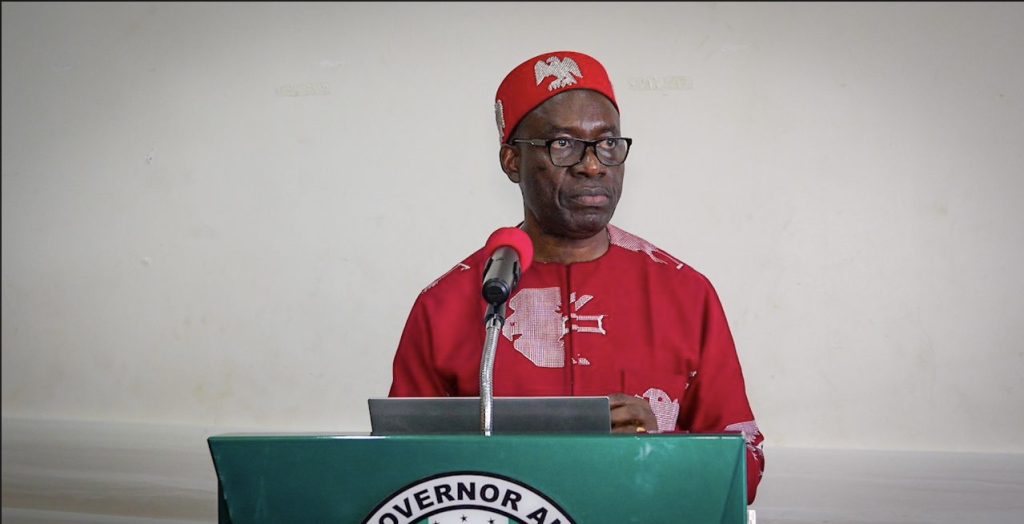The escalating insecurity in Anambra State, Nigeria, has ignited a fiery public discourse, with Reverend Father Emmanuel Obimma, popularly known as “Ebube Muonso,” openly criticizing Governor Chukwuma Soludo’s administration. Fr. Obimma, the spiritual director of the Holy Ghost Adoration Ministry, has consistently voiced concerns over the state’s security challenges, accusing the governor of inaction and prioritizing his re-election bid over the safety of citizens. He highlights the stark contrast between the governor’s heavily fortified security detail and the vulnerability of ordinary citizens who are left exposed to kidnappings, killings, and other criminal activities.
Fr. Obimma’s critique centers on the perceived disconnect between the governor’s pronouncements of adequate security measures and the grim reality on the ground. He questions the utilization of the substantial security votes allocated to the state, particularly in light of the persistent insecurity. The priest emphasizes the urgency of the situation, citing specific instances of violence, including the roadside murder of a young girl and the prolonged captivity of kidnap victims. He pointedly questions the governor’s priorities, contrasting his focus on personal fitness and routine activities with the suffering of citizens held captive or living in fear.
Further intensifying his criticism, Fr. Obimma challenges the silence of the state assembly members, questioning their lack of decisive action in addressing the security crisis, especially considering that one of their own has been held hostage for an extended period. He underscores the relatively small size of Anambra State and its forests, arguing that effective security coverage should be achievable with dedicated effort. The priest’s frustration stems from the apparent lack of progress despite the limited geographical area that security agencies need to patrol. He implores Anambra citizens to hold the governor accountable and actively participate in reclaiming their state from the grip of criminals.
In response to these accusations, Governor Soludo attributes the rising insecurity to a “conspiracy of silence” among residents. He argues that the criminals perpetrating these acts live within communities, often disguised as ordinary citizens – husbands, fathers, brothers, and friends. The governor emphasizes the limitations of government and security agencies in combating crime without the active cooperation of the public. He contends that the reluctance of residents to provide information about criminal activities hampers effective law enforcement efforts.
This clash of perspectives highlights the complex nature of the security challenge in Anambra State. While Fr. Obimma points fingers at the government’s perceived inaction and misplaced priorities, Governor Soludo emphasizes the crucial role of community involvement in providing intelligence and breaking the silence that protects criminals. The ongoing debate underscores the urgent need for a multi-pronged approach to address the security crisis, involving not only enhanced security measures but also a concerted effort to build trust between the community and law enforcement, thereby fostering a culture of information sharing and collective responsibility.
The situation in Anambra State underscores a broader challenge faced by many regions grappling with insecurity. The effectiveness of law enforcement hinges on the availability of timely and accurate information, often relying on the willingness of citizens to report suspicious activities and cooperate with investigations. Building this trust requires transparent and accountable governance, demonstrating a genuine commitment to protecting citizens and addressing their concerns. The ongoing dialogue between religious leaders, government officials, and the community is crucial to finding sustainable solutions and restoring peace and security in Anambra State.


